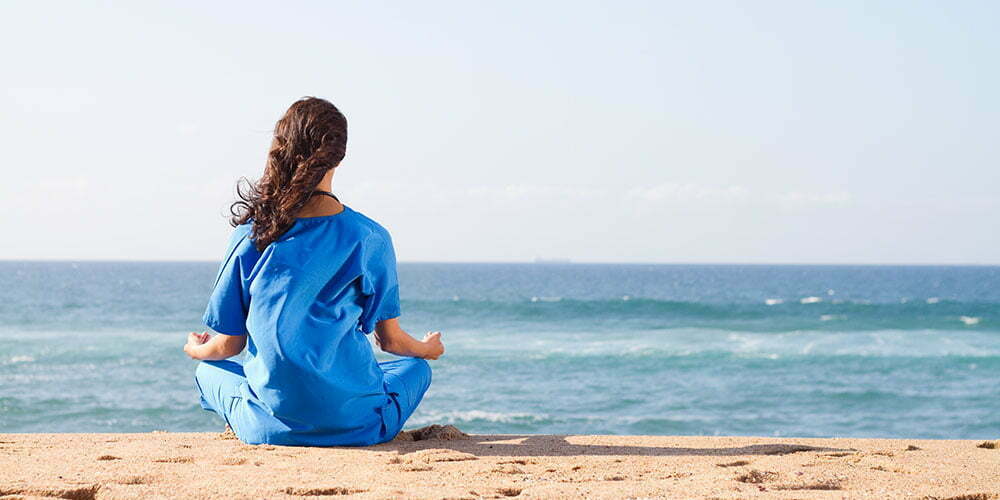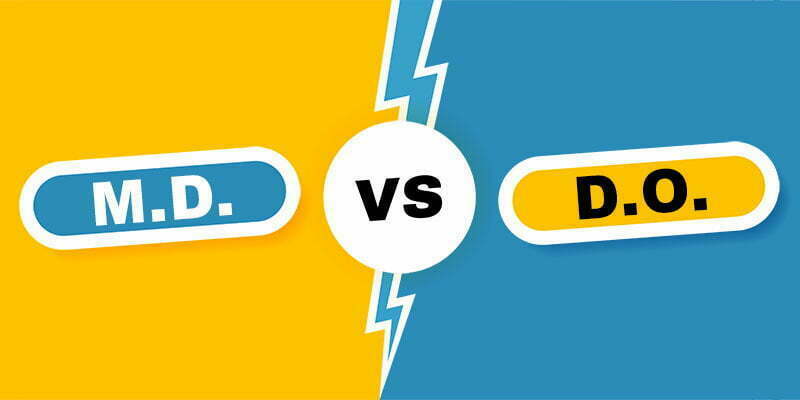The information on this website should not be considered medical advice.
This website contains affiliate links, and we may be compensated for referrals.
Gaining admission to a U.S. medical school comes with its share of difficulties. According to the Association of American Medical Colleges, the national acceptance rate is roughly 43% due to how competitive medical schools have become. This rate will likely continue to decrease each year as competition increases, resulting in less competitive applicants searching elsewhere to fulfill their dream of becoming a doctor. This often leads these applicants toward Caribbean medical schools due to their easier accessibility. Taking this route, however, comes with its own set of difficulties that aren’t seen with U.S. medical schools. It’s important to weigh the pros and cons when applying to foreign medical schools to be better prepared for the extra challenges that come with them.
Before beginning admission applications, it’s essential to know what the options are. The “Top 4 Caribbean schools” that boast the highest success rates for their graduates are:
- American University of the Caribbean (AUC)
- Ross University
- St. George’s University (SGU)
- Saba University
There are multiple other Caribbean medical schools that will allow their graduates to practice in the U.S. However, they are newer and less established. Examples of these include:
- American University of Antigua (AUA)
- Medical University of the Americas (MUA)
- St. Matthew’s University
- American University of Integrative Sciences (AUIS)
There have been graduates from all of these Caribbean medical schools that have matched into a U.S. residency, but not all IMGs have success stories to share.
Let’s begin with the pros of attending a Caribbean medical school:
Pros:
Easier To Get Admitted
Caribbean medical schools require much lower GPA and MCAT scores for admission than U.S. medical schools do. U.S. medical schools require a GPA of over 3.6 and an MCAT score of 517+ to be considered competitive, while the average GPA and MCAT scores for Caribbean medical schools are generally 3.2-3.3 and 490-500, respectively. In fact, some Caribbean medical schools have even removed the MCAT requirement. These lower standards allow a second chance for applicants who achieved subpar GPA and MCAT scores.
Rolling Admissions
One nice benefit of Caribbean medical schools is if you miss the deadline for admissions, you must wait only four months to apply again. They have new semesters starting in the Fall, Spring, and Summer, allowing applicants to apply throughout the year. This is helpful when applying to U.S. medical schools, which only have one start date each year; if you aren’t accepted, you can still start right away at a Caribbean medical school.
Clinical Rotations In The U.S.
Some Caribbean medical schools, including the ones listed above, will allow their students to take their 3rd and 4th year clinical rotations in the U.S. This allows the student to have exposure to the U.S. healthcare system, make important connections with the physician attendings, and secure letters of recommendation that will help with residency applications. Studies have shown higher chances for medical students to match at hospitals they rotated at, as it gave the attendings first-hand experience working with them.
Early Clinical Experience
Many Caribbean medical schools allow their students to begin developing clinical skills earlier in their education, starting in 1st and 2nd year. This offers an advantage over U.S. medical schools, which have their students begin their clinical experience in the later years. Beginning clinical training earlier in medical school will allow students to be better prepared to apply their medical knowledge during clinical rotations.
While it’s not widely known, international medical graduates (IMGs) actually play an important role in the American healthcare system, making up roughly 25% of physicians training and practicing in the United States. Looking at only Caribbean medical graduates, they make up roughly 18% of practicing U.S. physicians. Even though these graduates are essential in the U.S. healthcare system, there are important cons to consider when attending these medical schools:
Cons:
No Guarantee That You Will Become A Doctor
While U.S. medical schools tend to do everything in their power to ensure that their medical students graduate, many Caribbean schools cull the bottom of their class. Accepting upwards of 500 students per class (compared to the U.S. average of about 150), Caribbean medical schools artificially increase their match rates by dropping students who underperform. Of those students who do participate in the match, according to the National Resident Match Program (NRMP) 2021 match results, only 57.2% of IMGs, both U.S. and non-U.S., matched into U.S. residencies. This is in comparison to U.S. medical and osteopathic graduates, who experienced match rates of 92.5% (normally in the 92-95% range) and 89.1%, respectively.
Limited Residency Options
While not impossible to match into any type of residency, Caribbean medical school graduates are generally at a disadvantage to matching in competitive specialties, such as dermatology, plastic surgery, orthopedical surgery, etc. IMGs have generally had the most success matching into primary care specialties, such as family medicine, internal medicine, etc. Even with amazing CVs and board scores, their chances of success are limited.
(Read The Top 5 Specialties That Are Hardest to Match Into – And the 5 Easiest Ones)
Less Supportive Culture
The vast majority of Caribbean medical schools are for-profit businesses, meaning making a profit is a driving force for these companies. This results in student well-being and support systems being low priority. Many Caribbean students report subpar facilities and curricula. Because of this, students often have to rely on each other and their own resources to reach the end. It’s also important to remember that because of the high competition for IMGs, not everyone will want to help their classmates, which further limits the ability to succeed. Lastly, because many of the schools are located in developing countries, the standard of living can be greatly decreased. Annual tropical storms may interfere with access to water and electricity, and some students even report increased safety concerns such as robberies and assaults. As such, Caribbean medical schools often observe significantly higher attrition rates.
High Competition
At the end of the day, Caribbean medical school graduates will always have to outcompete their U.S. medical graduate counterparts. Therefore, they must score higher USMLE scores, have a higher GPA, have more research experience, etc., just to be considered by U.S. residencies. There is even still a stigma against IMGs by some residencies, as they refuse to accept them over U.S. graduates because they think their training is subpar.
High Debt Burden
Many Caribbean medical schools, including the top 4, have secured federal financial assistance for their students. However, this still results in their students accruing significant amounts of student loans, reaching up to $300,000 or more. This knowledge, combined with the fact that graduates are less likely to secure a residency, can be viewed as a risky option financially.
Attending a Caribbean medical school offers many challenges, as the education these graduates receive will always be viewed as subpar to their U.S. medical graduate counterparts. The best option is to learn medicine in the country you plan to practice, whether that be the United States, Canada, or Europe. If you plan to practice medicine in the United States, attending an American M.D. or D.O. school should be considered before moving abroad for medical training. For individuals who are motivated, driven, and accept the limitations, Caribbean schools may be a viable alternative when the U.S. medical schools continually refuse them. The journey is difficult, but once attaining a residency, everyone is treated equally. Obtaining a U.S. license allows Caribbean medical graduates to have the same salary, benefits, status, etc., as U.S. medical graduates. One just needs to determine if the risk is worth taking.




Facebook Comments